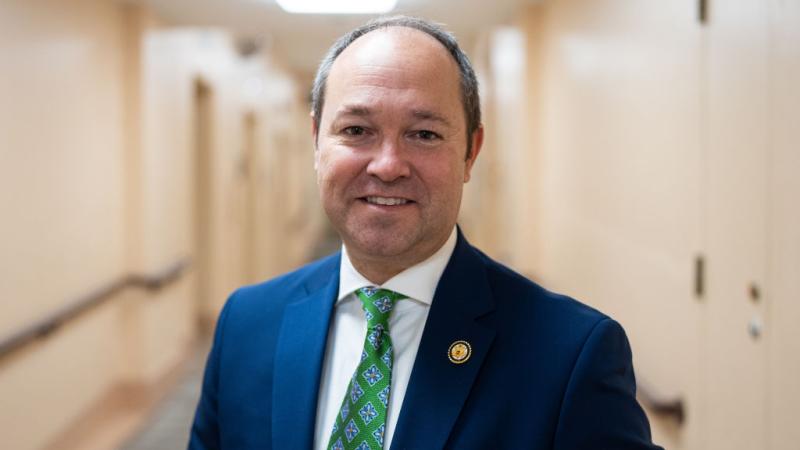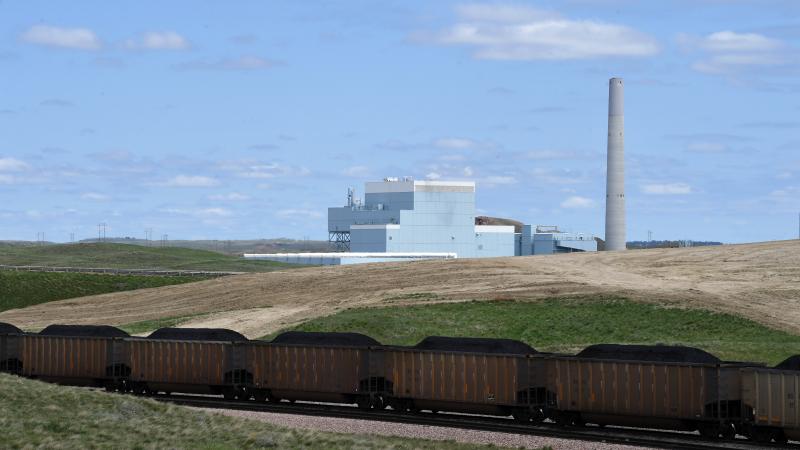Dissatisfaction all around of WA energy council's approval of Horse Heaven project
The project may ultimately include 222 turbines about 500 feet tall or 141 turbines about 670 feet tall. There will also be solar arrays and battery storage, stretching from Horse Heaven Hills just south of Kennewick for about 24 miles.
It seems almost no one is happy with last week's conclusion following a long fight over a large-scale wind and solar project just outside the Tri-Cities.
On Friday, the Energy Facilities Site Evaluation Council voted 4-3 to recommend Gov. Jay Inslee approve the Horse Heaven wind and solar project in southeast Washington.
The project run by Scout Clean Energy, a company recently purchased by a Canadian investment firm, may ultimately include 222 turbines about 500 feet tall or 141 turbines about 670 feet tall. There will also be solar arrays and battery storage, stretching from Horse Heaven Hills just south of Kennewick for about 24 miles from Finley to Benton City in the Tri-Cities metropolitan area.
A group of citizen activists with Tri-Cities CARES has criticized the project, citing wildlife and environmental concerns and the loss of open landscape views for residents.
“We thought EFSEC made the right move the first time around,” said Dave Sharp with Tri-Cities CARES, who was referring to EFSEC’s initial project approval in January, which was a scaled-back project that was basically half the size of what Scout Clean Energy asked to build.
“We thought that EFSEC made a good compromise, and the most objective turbines were pushed back,” Sharp told The Center Square on Monday.
EFSEC reduced the project's size to protect endangered ferruginous hawks, Native American traditional lands, and skyline views from much of the Tri-Cities.
But then Gov. Jay Inslee pushed back on the recommendations, telling EFSEC in April that any scaling back of the project should be balanced with prioritizing “the state’s pressing clean energy needs.”
Inslee urged the council to adopt the original proposal.
An email from EFSEC spokesperson Karl Holappa to The Center Square indicated a small number of turbines could be affected by the adopted Site Certification Agreement.
Inslee was critical of the initial recommendation for setting 2-mile buffers around about 60 historic Ferruginous hawk nests. The governor agreed with Scout that hawks were not nesting in the agricultural area and were unlikely to return.
EFSEC revised the buffer to six-tenths of a mile. However, a pre-construction advisory committee could recommend that it extend buffers to 2 miles around “viable” nests.
Also included in the agreement are a 1-mile buffer around Webber Canyon and a quarter-mile buffer around historic fire sites – that is, areas where there have been fires in the past.
“In combination [this would] remove approximately 38 of 222 Option 1 Turbines, or approximately 26 of 147 Option 2 Turbines,” Holappa’s explained.
Scout Clean Energy was not entirely happy with EFSEC’s decision.
“EFSEC’s revised decision offers a pathway to restore wind turbines and solar arrays but fails to address its flawed process for doing so, which involves the unprecedented step of subjecting substantive pre-construction decisions about the siting of project infrastructure to an outside group that will not be convened for several months, leading to further delay and continued uncertainty,” a Scout spokesperson said in an email.
That “outside group” is the Pre-operation Technical Advisory Group, which will be responsible for the final determination of the project's siting based on concerns for wildlife, cultural sensitivities, and firefighting efforts.
In written comments to EFSEC, Scout suggested EFSEC was deferring and relegating determinations to the PTAG after site certification, which Scout said, “will prevent final Project design, incapacitating and further delaying construction.”
Dave Kobus, senior project developer for the Horse Heaven project, expressed his displeasure.
“We have no certainty; this is untenable,” he told The Center Square Monday evening.
Kobus says concerns over turbine impacts on the endangered ferruginous hawk have been blown out of proportion as “there are no hawks in the area.”
“The reason the birds aren’t there is residential development,” he explained.
Sharp argued that the claims about what the project will produce energy-wise can't be met.
“They throw around 1,100 megawatts or 1,200 megawatts but it can never make that much,” he said. “In the dead of winter cold and intense summer heat is when you have stagnant air, and those turbines won’t be turning.”
Sharp added Scout Clean Energy hasn’t met the burden of providing ample power at a reasonable price.
Korbus responded by telling The Center Square, “We don’t make that determination. Our intention is to have a utility offtake, and they mix that in with their power supply equation.”
To residents who object to the project, arguing it will destroy open views of the landscape, Kobus said, “You get used to it.”
He concluded, “I think it’s beautiful.”
Meantime, Rep. Mary Dye, R-Pomeroy, has announced legislation “that will restore the power of decision-making to the communities most affected by energy projects in our state.”
Dye’s legislation would require that solar and wind projects seeking permitting through EFSEC receive approval from the affected county commissioners and tribes before they can reach the governor's desk for final approval.
“For too long, the system has been broken, disempowering local communities and undermining the hard work of county commissions, professional planning staff, and local citizens,” Dye emailed The Center Square. “These are the people who enact land use and zoning policies to protect everyone’s property rights fairly. Their efforts should be decisive, not dismissed by an unelected board of non-residents.”
She took a shot at Inslee in her conclusion: “One man, Gov. Jay Inslee, is dictating the outcome for everyone – EFSEC, our local communities, and all Washingtonians – as if he were emperor. This is not how democracy should function.”
Project developers call final agreement on Tri-Cities wind/solar project 'untenable'
















